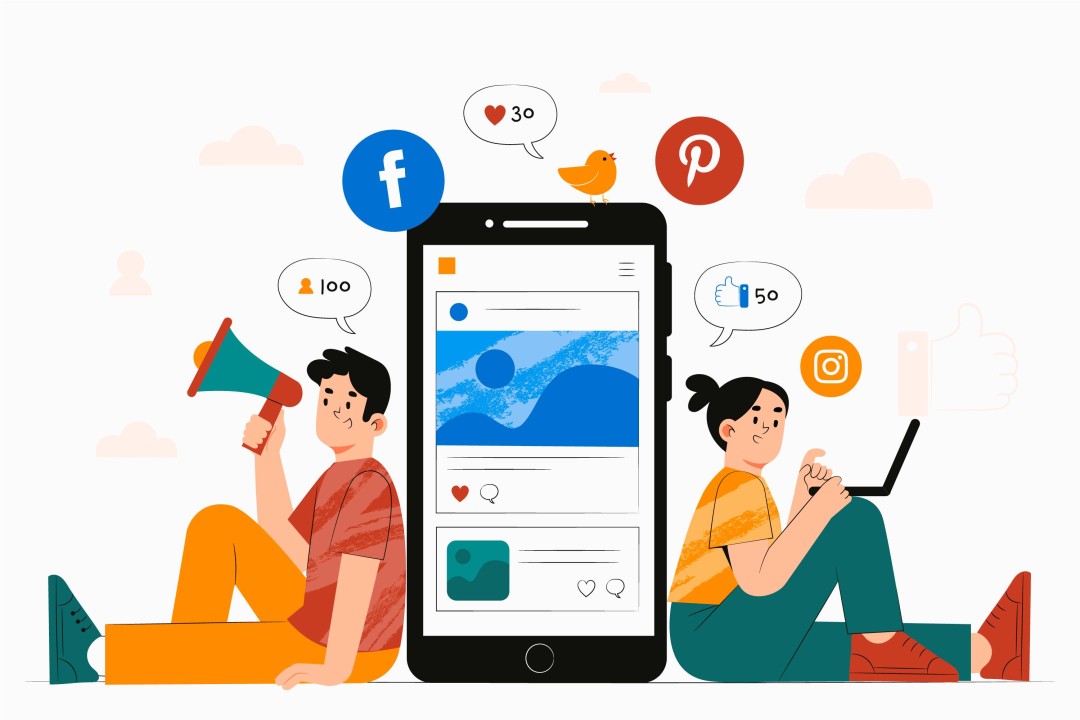In the dynamic landscape of digital marketing, social media influencers have emerged as powerful allies for brands aiming to cultivate loyalty among their customers. By leveraging their unique voice and connection with followers, influencers can significantly impact brand perception and customer retention. This blog explores the role of social media influencers in driving brand loyalty and how businesses can harness this potential effectively.

Table of Contents
Toggle1. Building Trust and Authenticity
One of the most significant advantages influencers bring to the table is their ability to build trust with their audience. Followers often view influencers as relatable figures, leading to a sense of authenticity that traditional advertising struggles to achieve. When influencers endorse a brand, their followers are more likely to trust that recommendation, resulting in increased brand credibility.
Example:
Consider a beauty influencer who genuinely loves a skincare product. Their authentic review can sway their followers’ perceptions, fostering trust in the brand and encouraging them to try the product themselves.
2. Creating Engaging Content
Influencers are skilled content creators who know how to engage their audience. By crafting captivating posts, videos, and stories, they can present brands in innovative and appealing ways. This engaging content not only attracts attention but also encourages followers to interact with the brand, creating a sense of community.
Example:
An influencer might create a tutorial using a specific makeup brand, showcasing its versatility and effectiveness. This not only highlights the product but also engages viewers, prompting them to consider the brand for their beauty needs.
3. Fostering Community and Connection
Influencers often cultivate strong communities around their personal brands. When they promote a product or service, they’re not just endorsing it—they’re inviting their followers to be part of a larger community that shares similar interests or values. This sense of belonging can significantly enhance brand loyalty.
Example:
Fitness influencers often create challenges or community events around a particular brand, encouraging their followers to participate and share their experiences. This interaction deepens the connection to both the influencer and the brand.
4. Driving User-Generated Content (UGC)
Influencers inspire their followers to create and share content related to a brand, amplifying its reach and fostering loyalty. When followers share their experiences using a product, it not only serves as a testimonial but also builds a sense of ownership and pride among customers.
Example:
A travel influencer might encourage their audience to share photos using a specific luggage brand during their trips. This creates a wealth of UGC, which serves as authentic marketing material while promoting brand loyalty.
5. Targeting Niche Audiences
Influencers often cater to specific niches, allowing brands to target particular demographics effectively. Collaborating with influencers who resonate with a specific audience ensures that marketing efforts are not only reaching the right people but also aligning with their interests and values.
Example:
A sustainable fashion brand partnering with eco-conscious influencers can reach an audience that prioritizes environmental responsibility, driving loyalty among customers who value ethical consumption.
6. Leveraging Influencer Endorsements for Promotions
Influencer endorsements can also be strategically used to drive promotions, giveaways, and exclusive offers. When influencers promote a limited-time offer or exclusive product, their followers feel a sense of urgency to engage with the brand, increasing both sales and loyalty.
Example:
An influencer might announce a special discount code for their followers, encouraging them to make a purchase while also feeling connected to the brand through the influencer’s endorsement.
7. Enhancing Customer Experience
Influencers can play a crucial role in enhancing the overall customer experience by providing valuable insights and recommendations. Their expertise can guide consumers in making informed decisions, ensuring a positive association with the brand.
Example:
Tech influencers who review gadgets can help customers understand product features and functionalities, making them more confident in their purchasing decisions.
8. Continuous Engagement and Feedback
Successful influencer partnerships are not just one-off campaigns; they often involve ongoing engagement. By maintaining a relationship with influencers, brands can receive valuable feedback from their audience, adapt their strategies, and enhance customer satisfaction.
Example:
A food brand collaborating with a culinary influencer might continuously engage in campaigns, allowing the influencer to share feedback on new products and gather insights from their audience.
Conclusion
Social media influencers play a vital role in driving brand loyalty by building trust, creating engaging content, fostering community, and enhancing the customer experience. By strategically partnering with the right influencers, brands can tap into their authenticity and reach, effectively cultivating a loyal customer base. As the digital landscape continues to evolve, leveraging the influence of these social media personalities will be essential for brands looking to thrive and maintain customer loyalty in a competitive marketplace.


No responses yet